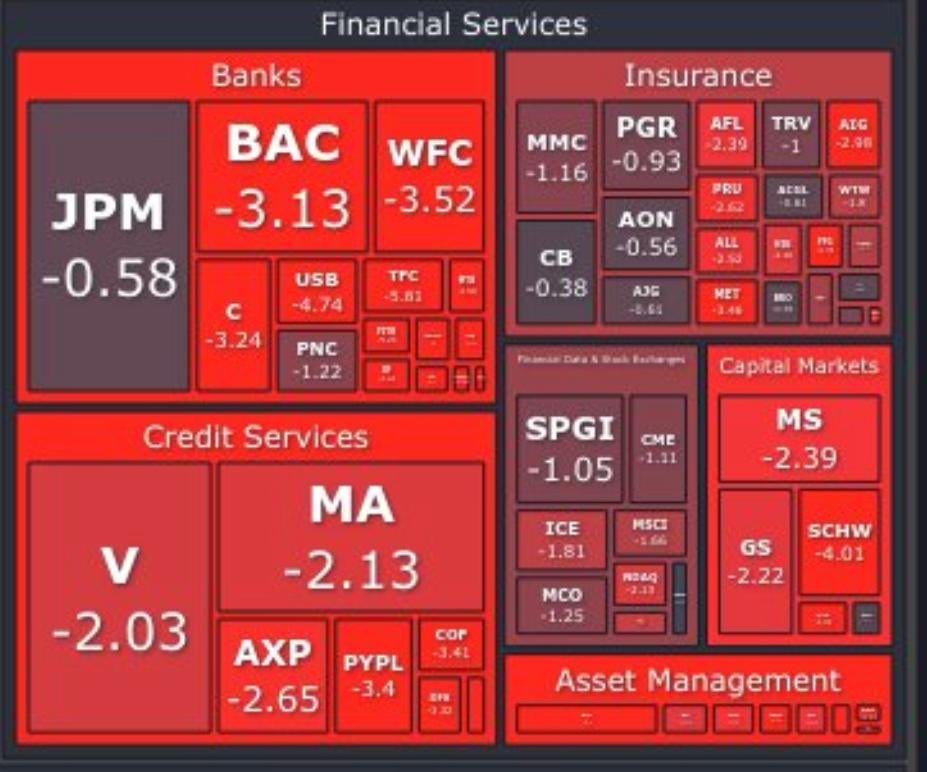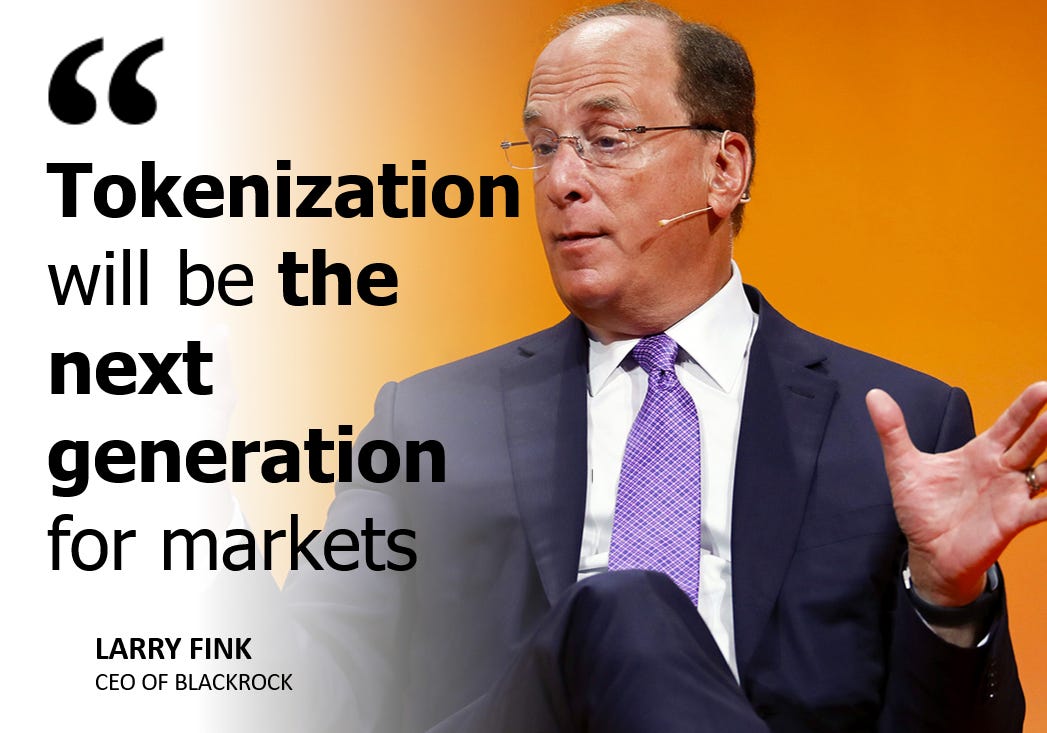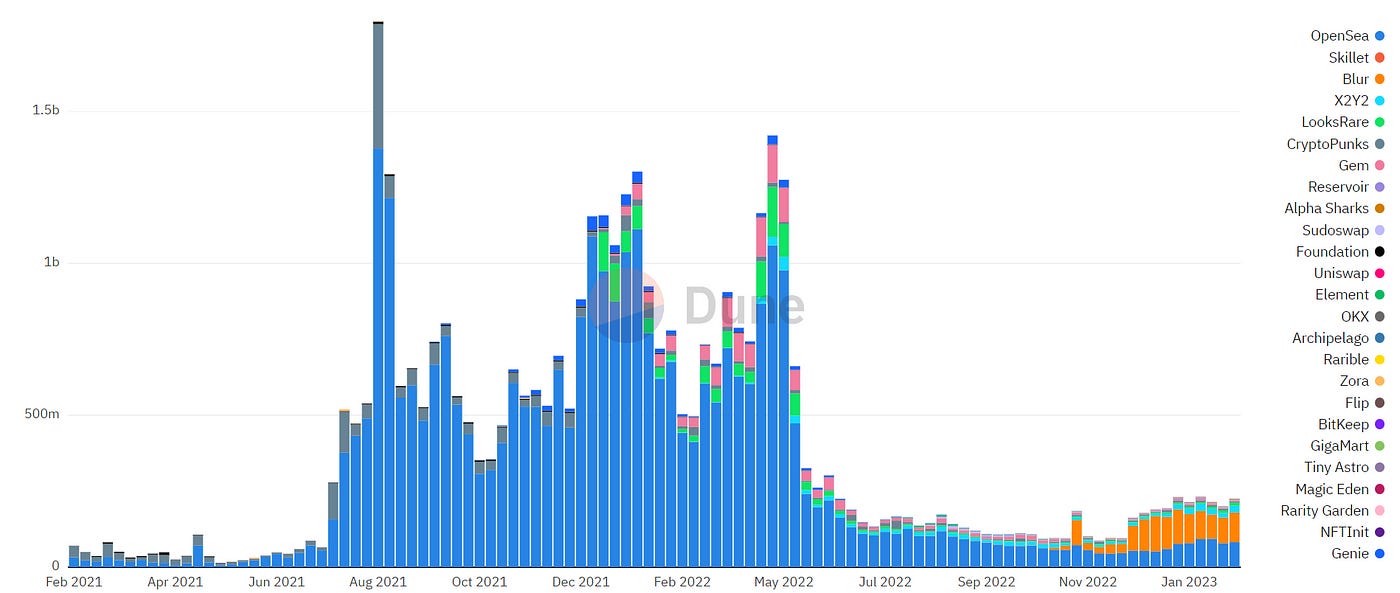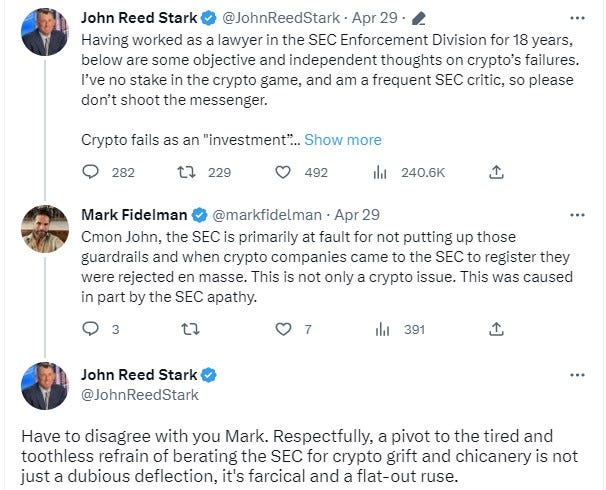How One Strategic Investment Changed the Course of Tech History
Welcome back to "Tokenized Asset Insider," your go-to source for the latest news and trends in the world of tokenization, written exclusively for family offices, investors, and high-value asset owners
I'm going to take you back to a critical moment in the history of a world-renowned tech company, and you'll be surprised when you hear the rest of the story.
There was a time when one of the most iconic technology companies on the planet found itself in dire straits. After enjoying tremendous success in the technology industry, this company began to falter, losing ground to its competitors and watching its stock price plummet. It seemed as though the end was near, and the company's demise appeared imminent.
But, as fate would have it, there was an unexpected twist in store. Enter the CEO of the company's fiercest competitor—a man known for his relentless pursuit of market domination and cutthroat business tactics. When it seemed as though all hope was lost, he extended a helping hand to his rival, offering a lifeline that no one saw coming.
This seemingly inexplicable act of generosity sent shockwaves through the tech industry. Why on earth would this business titan, known for crushing the competition, step in to save his struggling rival? As it turns out, he wasn't just motivated by altruism; he saw a strategic opportunity to strengthen his own empire while keeping a key competitor in play and regulators at bay.
And so, the deal was struck. The powerful CEO invested millions of dollars into the floundering company and agreed to support one of its flagship products. Against all odds, this once-doomed company managed to regain its footing and eventually re-emerged as a global leader in technology, changing the way we work, play, and communicate.
Now, for the rest of the story. The company that teetered on the edge of collapse was none other than Apple, and the surprising savior who stepped in to rescue them was Microsoft's Bill Gates. In 1997, Gates invested $150 million in Apple, a decision that proved crucial in reversing the company's downward spiral. And while Apple and Microsoft continue to be fierce competitors, this extraordinary act of collaboration had a lasting impact on the tech industry.
And now you know...
🔒 NEED TO KNOW 🔒
BREAKING: US Banking Crisis - Bank Shares Nosedive
In a distressing turn of events, shares of major U.S. regional banks plummeted on Tuesday, following the shocking collapse of First Republic Bank - the most significant U.S. bank failure since the 2008 financial crisis. PacWest Bancorp's shares nosedived by nearly 30%, while Western Alliance Bank and KeyCorp experienced steep declines of 21% and 10%, respectively. Consequently, the KBW Regional Banking Index plunged 5.2%, reaching its lowest point since December 2020. Experts caution that the First Republic debacle exposes a "confidence crisis" that could potentially engulf any bank across the nation.
First Republic Bank
In a striking turn of events, the banking industry is witnessing another failure of a bank. First Republic, a seemingly inexplicable phenomenon in a time of low unemployment, positive GDP, and robust securities markets. Delving deeper into this conundrum, the bank's downfall appears to be a result of a perfect storm of factors – excessive risk-taking in lending practices, overconfidence in a booming economy, regulatory complacency, and a general lack of preparedness for an unforeseen economic downturn. The combination of these elements has led to a precarious situation where even the most affluent of clients face potential losses, revealing the vulnerability of the entire financial system and prompting the question of whether this is just the tip of the iceberg
Exciting New Investment Opportunities: DWS and Galaxy Join Forces for Digital Asset Management in Europe
Leading global investment manager DWS Group and prominent digital asset firm Galaxy Digital Holdings have partnered to create cutting-edge digital asset management solutions specifically designed for family offices and high net worth individuals in Europe. This strategic alliance focuses on meeting the increasing demand for digital assets and blockchain technology investments from sophisticated investors. By combining their respective expertise, both companies aim to deliver innovative investment products and services tailored to this discerning audience, while also placing emphasis on ESG-related digital asset initiatives. This collaboration opens up new avenues for wealth preservation and growth in the rapidly evolving digital asset landscape.
Marketers cited 2023 top trends by the numbers:
Metaverse: About 80% of marketing executives surveyed across the energy, resources, and industrials (ER&I) and life sciences and health care (LS&HC) industries are gravitating toward the metaverse within the next two years.
Digital Currencies: 41% of CMOs surveyed plan to support their advertising strategy with blockchain in the next 12 months. (link)
Tokenization: The Game-Changer for Traditional Finance, says JPMorgan
JPMorgan, a leading global financial institution, has identified tokenization as the pivotal application that bridges traditional finance with the digital asset space.
Tokenization enables the conversion of real-world assets into digital tokens, making them more accessible and easily tradable. This development is especially important for family offices and high net worth (HNW) investors, as it offers an unprecedented opportunity to diversify their investment portfolios.
By participating in the tokenized asset market, these investors can gain exposure to a wide range of assets, from real estate to fine art, while enjoying the benefits of enhanced liquidity, lower transaction costs, and increased market access. Tokenization has the potential to revolutionize investment strategies and unlock new opportunities for wealth growth and preservation. (link)
Our Take -> The recent strategic alliance between DWS Group and Galaxy Digital Holdings, along with JPMorgan's identification of tokenization as the pivotal application bridging traditional finance and digital assets, highlight the rapid growth and increasing importance of tokenization in the financial world.
As an industry analyst, these developments signal a strong move towards embracing tokenization, which presents a unique opportunity for family offices and high net worth (HNW) investors to diversify their investment portfolios, gain exposure to a wide range of assets, and benefit from enhanced liquidity and lower transaction costs.
The partnership between DWS and Galaxy is a prime example of how traditional financial institutions and digital asset firms are joining forces to create tailored investment solutions for sophisticated investors. Coupled with JPMorgan's insights, these developments underscore the potential of tokenization to revolutionize investment strategies and unlock new opportunities for wealth growth and preservation.
In light of this, it is crucial for family offices, HNW investors and high value asset owners to stay informed about tokenization and explore its potential benefits, as it is poised to become a major force in reshaping the global financial landscape.
💰 INVESTMENT OPPORTUNITIES💰
In the ever-evolving world of crypto, stablecoins - tokens that mirror real-world fiat currencies - have long reigned supreme as the preferred form of real-world asset (RWA) representation. However, a fresh breed of RWAs is gaining traction and demanding attention. Enter lending protocols: these ingenious platforms bridge borrowers with real-world businesses, and in return for lending, DeFi enthusiasts are rewarded with yields. While not as volatile as lending pool yields derived from automated market maker liquidity provision, these yields are not without their risks.
Enter RWA.xyz, a website that has ingeniously crafted a dashboard to monitor these loan-based RWAs, or 'Private Credit.' With over US$500 million in active Private Credit RWA value within the crypto sphere, the landscape is shifting. Boasting an impressive average return of 11.03%, this emerging asset class is turning heads and reshaping the future of digital finance.
📈 MARKET INSIGHTS AND TRENDS 📈
Navigating the NFT Downturn:
I’ll say it again, don’t invest in first-generation NFTs. Wait for the next generation of NFTs that are backed by assets. Indeed, the once-booming NFT market is witnessing a sharp decline in prices, leaving many to question the root cause.
Upon closer examination, it appears that this dip is fueled by a confluence of factors, including market saturation, diminishing novelty, and the fickle nature of the hype-driven ecosystem. As more NFT projects flood the space, buyers are becoming increasingly discerning, opting for quality over quantity.
The ephemeral nature of trends, coupled with a growing awareness of the environmental impact of NFTs, further exacerbates the downturn. This dip serves as a stark reminder that even the most promising of investment frontiers can succumb to the whims of market forces and evolving consumer preferences.
🎯 EXPERT INTERVIEWS 🎯
#1 Red Swan CEO Ed Nwokedi and I discuss commercial real estate tokenization and addresses the $3 trillion dollar commercial refinance crunch coming in 2 years in this enlightening (Cryptonized interview).
#2 CEO of Securitize, Explores the Untapped Potential of Digitizing Real Assets and Their Impact on the Securities Market
At Consensus in Austin Tx, Carlos Domingo, CEO of Securitize, discussed the tokenization of real-world assets, such as real estate. He explained that digitizing assets and tracking their ownership on a blockchain unlocks significant value, enabling fractional ownership, providing liquidity, and facilitating lending against them.
Domingo stated that tokenization involves securitizing an asset and selling shares of the asset to investors, represented on a public blockchain as a means of proving and transferring ownership. He also mentioned that participation in these tokenized securities depends on regulatory registration and exemptions.
Domingo agreed with the statement that most cryptocurrencies are securities and highlighted the advantages of using blockchain technology for the securities market, such as efficient asset ownership representation and transfer. He also touched upon the potential benefits of using decentralized finance (DeFi) technology in the regulated securities market.
#3 My discussion with a former SEC Regulator John Stark
John Reed Stark is the President, John Reed Stark Consulting LLC | Senior Lecturing Fellow, Duke University School of Law | Former Chief, SEC Office of Internet Enforcement
John and I got into a friendly debate about the lack of SEC oversight. If you’re interested in the full discussion between us, click on this link
The Quick Take: John Reed Stark, a former lawyer at the SEC, argues that crypto fails as an investment, currency, store of value, financial panacea for the unbanked, and a safe haven due to the lack of regulatory oversight, transparency, consumer protections, insurance, licensure, and net capital requirements. He asserts that the SEC has been the sole US regulator fighting against crypto-related fraud and that blaming the SEC for crypto's issues is an unjust deflection.
While I, on the other hand, contend that the SEC is primarily at fault for not providing the necessary regulatory guardrails for the crypto industry. I pointed out that when crypto companies tried to register with the SEC, most were rejected or ignored, and only one ETF has been approved. We need clear, concise language and guidance from the SEC to help the industry comply with regulations and argues that a new securities test could be developed to cover most use cases, fostering better cooperation between the SEC and the crypto industry.
None of this applies to security tokens and tokenization, but I do feel that the SEC owes the taxpayers clearer guidelines for the crypto industry.
✈ COMMUNITY SPOTLIGHT ✈
Nasdaq weighs in…
In the ever-evolving crypto landscape, the pursuit of risk-free yield seems like an unattainable dream; however, asset tokenization could be the key! By tokenizing real-world assets, investors can now access the benefits of blockchain technology without entirely forgoing stability.
This groundbreaking approach has the potential to unlock liquidity, increase transparency, and enable fractional ownership, all while tapping into lucrative yield opportunities. If the industry nails the fine balance between risk and reward, asset tokenization could revolutionize the financial world and propel crypto to unimaginable heights! (Article)
Author Bio
Mark Fidelman, the tech-savvy founder of SmartBlocks.Agency, who has been making waves in the world of crypto for over 5 years. With a background in technology sales, marketing, and customer experience, Mark has been instrumental in driving growth for organizations such as NFT leader WAX.io.
But that's not all - Mark has also been recognized as a top influencer by Forbes Magazine, named a social media keynote speaker by Inc Magazine, and ranked among the Huffington Post's Top 50 Most Social CEOs. He's even got his own YouTube channel, Cryptonized!, where he shares insights on the hottest crypto trends. Twitter
⚖SMARTBLOCKS LEGAL DISCLAIMER:⚖
Please note that the information provided by SmartBlocks, LLC and Mark Fidelman, including but not limited to any articles, videos, or podcasts, is for educational and informational purposes only. SmartBlocks, LLC and Mark Fidelman are not registered financial advisors, nor are they providing personalized investment advice.
The content is not a substitute for individualized investment advice from a qualified professional who is aware of your specific circumstances. Investing in cryptocurrency carries a high level of risk, and investors should only consider investing in cryptocurrency if they can afford to sustain the loss of their entire investment. SmartBlocks, LLC and Mark Fidelman are not responsible for any gains or losses that result from your cryptocurrency investments. Before making any investment decisions, we strongly recommend that you consult with a financial advisor.












